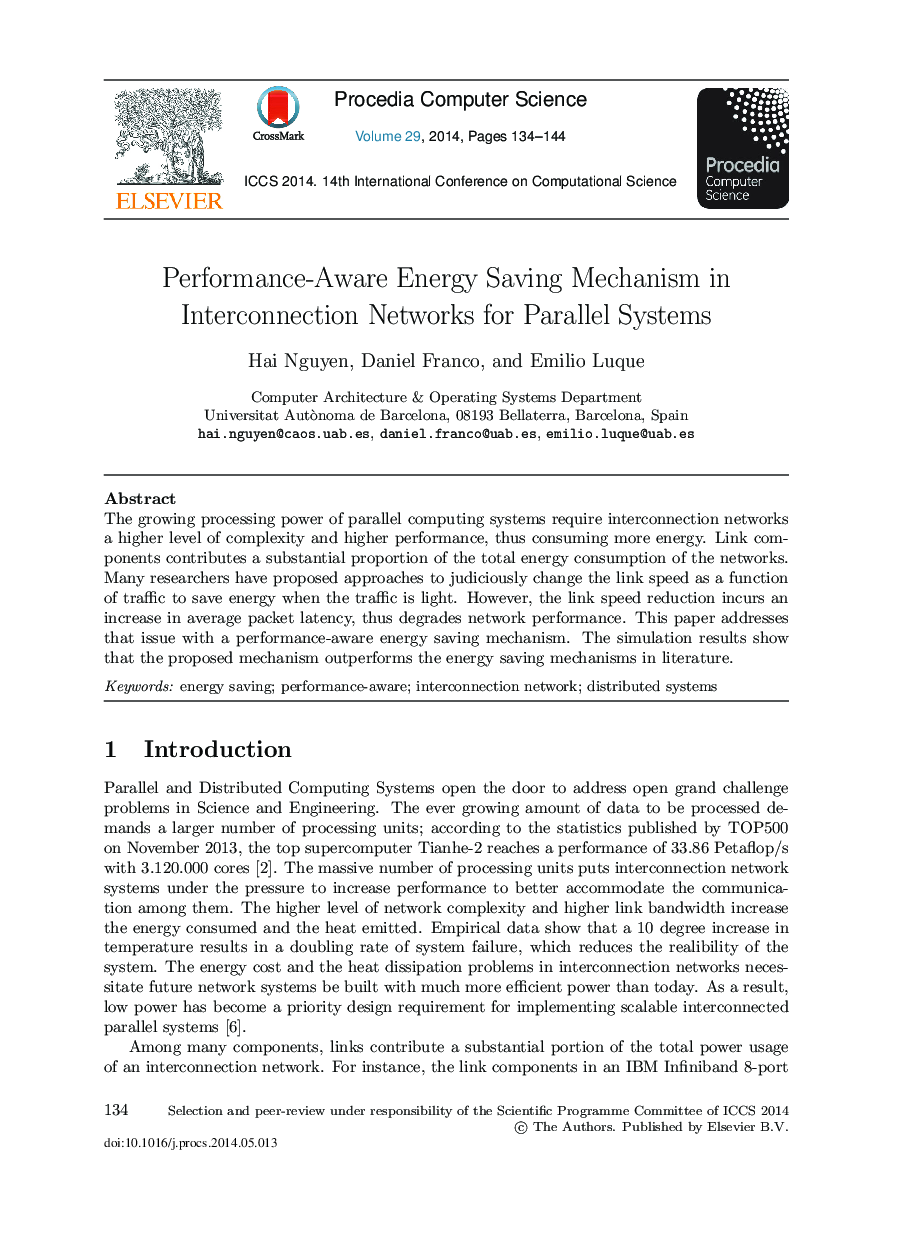| Article ID | Journal | Published Year | Pages | File Type |
|---|---|---|---|---|
| 490210 | Procedia Computer Science | 2014 | 11 Pages |
Abstract
The growing processing power of parallel computing systems require interconnection networks a higher level of complexity and higher performance, thus consuming more energy. Link components contributes a substantial proportion of the total energy consumption of the networks. Many researchers have proposed approaches to judiciously change the link speed as a function of traffic to save energy when the traffic is light. However, the link speed reduction incurs an increase in average packet latency, thus degrades network performance. This paper addresses that issue with a performance-aware energy saving mechanism. The simulation results show that the proposed mechanism outperforms the energy saving mechanisms in literature.
Related Topics
Physical Sciences and Engineering
Computer Science
Computer Science (General)
